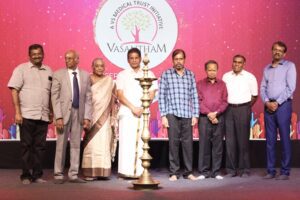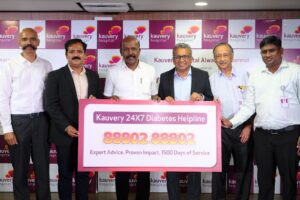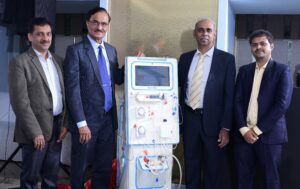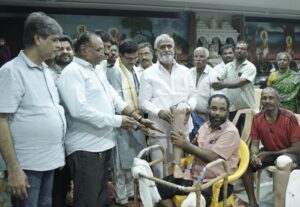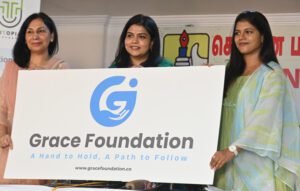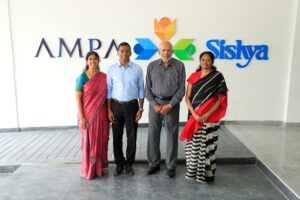Chennai Plays Host to a heart-warming moment: Blood Stem Cell Donor Meets 11-Year-Old Survivor
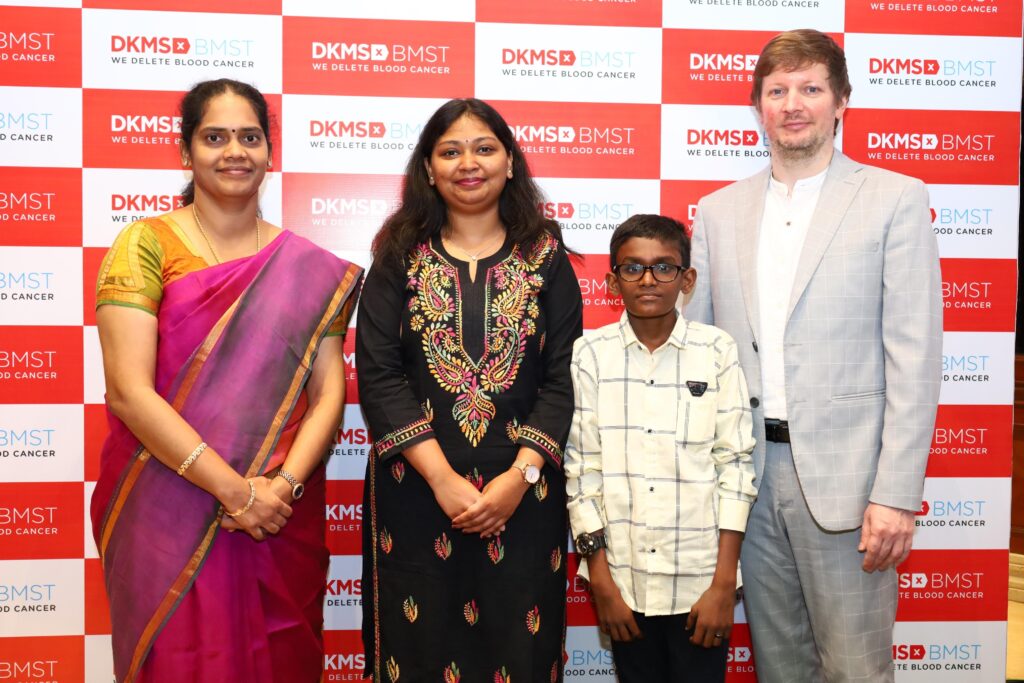
Chennai, September 2024: In a touching tale of humanitarianism, Selva, an 11-year-old boy from Tiruchirappalli who survived Fanconi Anemia, met the person who helped save his life—Dr. Smita Joshi, a 26-year-old clinical pharmacist from Bengaluru for the first time. Selva, who was treated under Dr. Aruna Rajendran, now attends school in the 7th standard, enjoying a new lease on life thanks to the blood stem cell transplant he received.
Dr. Smita Joshi, a dedicated healthcare professional working in Bengaluru, became a stem cell donor with DKMS BMST Foundation India, driven by her passion for helping others. Despite initial reservations from her family, she proceeded with the donation without informing her parents. “I felt it was something I had to do. Knowing I could give someone a second chance at life was motivation enough,” said Smita.
“We are immensely grateful to Dr. Smita Joshi for her life-saving deed. Selva’s recovery has been nothing short of remarkable,” said the survivor’s parents.
Selva was diagnosed with Fanconi Anemia, a rare genetic disorder that affects the bone marrow’s ability to produce blood cells. A stem cell transplant was Selva’s only hope for survival. Dr. Aruna Rajendran, Associate Professor, Dept of Hematology, Institute of Child Health, Madras Medical College & Bone Marrow Transplant Unit In charge, Rajiv Gandhi Government General Hospital, Chennai, said, “Fanconi Anemia is a rare but serious genetic disorder that can lead to bone marrow failure and life-threatening conditions like leukemia. A stem cell transplant is often the only curative option for these patients. I am pleased to see Selva fully recovered and thriving after his transplant. It is crucial that more individuals, like Dr. Smita Joshi, register as potential stem cell donors, as this can provide hope and life-saving treatment to many more patients in need.”
Every five minutes, someone in India is diagnosed with blood cancer or a blood disorder such as thalassemia or aplastic anaemia. A significant number of these patients are children and young adults, and for many, a blood stem cell transplant is their only hope for recovery. However, for the transplant to be successful, the patient must find a matching Human Leukocyte Antigen (HLA) donor. Unfortunately, due to the scarcity of registered blood stem cell donors, most patients struggle to find a suitable match. With only a one-in-a-million chance of finding a compatible donor, there is an urgent need for more individuals of Indian ethnicity to register as potential donors.
Patrick Paul, CEO of DKMS BMST Foundation India says, “With over 70,000 individuals in India succumbing to blood cancer and blood disorders annually, there is a critical need for more people to register as stem cell donors. India faces a significant challenge in finding HLA-matched donors for patients in need of stem cell transplants. Donating blood stem cells is a voluntary act of solidarity with a seriously ill person and Dr. Smita’s decision to become a donor is a tangible expression of empathy, stories like Selva’s remind us of the life-changing power of stem cell donation.”
Since Selva’s parents could not afford the costs related to Selva’s treatment DKMS-BMST also helped him to access stem cell transplant by removing the barrier to this life-saving treatment.
In India, patients from lower socioeconomic backgrounds face substantial challenges in accessing high-end treatment for life-threatening diseases like blood cancer and other blood disorders due to the enormous costs involved. Guidance on treatment options and potential sources of financial support are the most critical factors affecting access to treatment in India. The DKMS BMST Patient Funding Program addresses these challenges by offering partial financial support for stem cell transplant patients from lower socioeconomic backgrounds in India when financial resources, including government and other funding support, may not be sufficient to cover all expenses. Efforts of this program have illuminated the path towards a brighter future for many patients, providing them with the promise of a healthier life.
He further emphasises, “As a non-profit organisation, we work to support Indian blood cancer and blood disorder patients to get a second chance at life. To be able to do this, it is important to reduce the financial burden on patients and their families. With the DKMS Patient Funding Programme, we support underprivileged blood cancer and blood disorder patients by covering a part of their stem cell transplantation costs.”
DKMS BMST Foundation India continues its mission to raise awareness about stem cell donation and encourages more people to register as potential donors. Selva’s story, and the actions of donors like Smita, offer hope to the thousands of patients still waiting for a match.
To register as a potential stem cell donor, you must be a healthy Indian adult between 18 and 55. When you are ready to register, all you need to do is complete a consent form and swab the inside of your cheeks to collect your tissue cells. Your tissue sample is then sent to the lab to be analysed for your HLA (Human Leukocyte Antigen) and listed anonymously on the international search platform for matching stem cell donors. If you’re eligible, register as a blood stem cell donor by ordering your home swab kit at www.dkms-bmst.org/register

